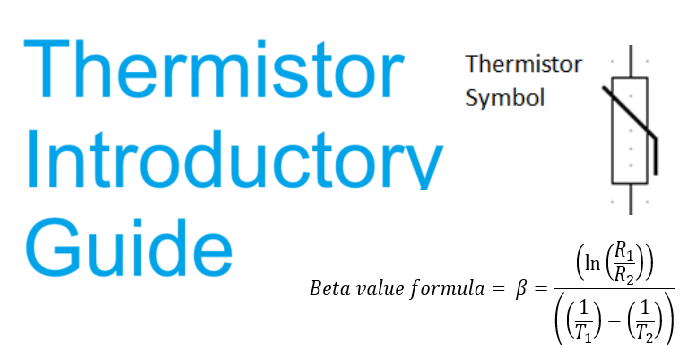NTC Thermistor Introduction
An NTC thermistor (Negative Temperature Coefficient thermistor) is a type of temperature sensor made of ceramic materials that exhibits a decrease in resistance as the temperature increases.
Characteristics of NTC Thermistors:
View our NTC thermistor sensors and probes for sale and contact us for the best advice
Negative Temperature Coefficient (NTC)
As the temperature increases, the resistance decreases. This characteristic is why they're called Negative Temperature coefficient thermistor is shortened to NTC thermistors.
Material
They are usually made from ceramic materials like metal oxides, which are designed to exhibit this negative temperature coefficient.
Sensitivity
NTC thermistors are highly sensitive to temperature changes, making them very precise temperature sensors in many applications.
However the thermistor packaging will contribute to how quickly the thermistor will react to temperature
View our thermistor probes guide for a comparison of thermistor protection
Common Applications of NTC Thermistors:
Temperature Measurement
For temperature sensing and control. For example, in medical devices like thermometers, battery packs, or refrigeration.
Circuit Protection
They can also be used in power supply circuits for inrush current limiting, where their resistance decreases as the temperature rises, preventing high initial current flows which is common in motor control or heavy load switching
Example of Use:
Thermal sensing
A common application is in digital thermometers. The thermistor is placed in an electronic circuit commonly a potential divider. As the resistance changes the voltage output of the potential divider circuit changes. The voltage can be measured and the temperature can be calculated from it.
Advantages:
High Accuracy
NTC thermistors can provide highly accurate temperature readings due to their predictable resistance changes. Some NTC thermistors can be 0.1%
Compact Size
They are small and easy to integrate into various devices. They can have various protecting enclosures to suit their application.
Disadvantages:
Limited Temperature Range
NTC thermistors generally have a limited temperature range compared to other types of temperature sensors, such as thermocouples.
Non-linear Response
The relationship between temperature and resistance is nonlinear and is exponential , which can make calibration a more complex. Also to decode the signal from the thermistor re quires a lot of embedded code space.
View a more in-depth review on thermistors in general


